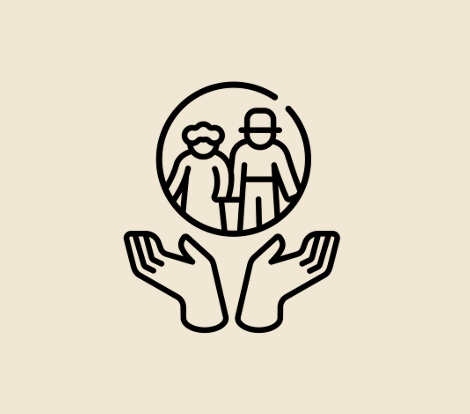
Caregiving Finds a Leading Man
Every month, High Lantern Group shares a collection of the most interesting perspectives on the healthcare industry’s trends and developments. We are happy to share them with you — and hope you share your thoughts with us.
Dear clients and friends: Given your interest in health and medicine, we would like to share with you our collection of the most interesting perspectives on our industry's trends and developments. We are happy to share them with you — and hope you share your thoughts with us.
1. MAHA’s Unhealthy Evidence
Many anticipated that the MAHA Commission’s report would prioritize ideology over evidence, and junk science over data-based research. But few expected outright fabrications. NOTUS, a DC-focused news site, finds numerous examples of fictitious and erroneous citations. Here’s one:
It’s not clear that anyone wrote the study cited in the MAHA report. The citation refers to a study titled, “Changes in mental health and substance abuse among US adolescents during the COVID-19 pandemic,” along with a nonfunctional link to the study’s digital object identifier. While the citation claims that the study appeared in the 12th issue of the 176th edition of the journal JAMA Pediatrics, that issue didn’t include a study with that title.
Another surprise: MAHA went mum on DTC. But not two US Senators, who are moving forward with legislation to ban it.
2. Caregiving Finds a Leading Man
Family caregivers are heroic—and underappreciated. Bradley Cooper aims to rewrite the script with a new PBS documentary, Caregiving, that puts the faces and stories of caregivers on the marquee:
Drawing on the deeply human experiences of six caregivers across the country, Caregiving illustrates the daily emotional, financial and physical burdens carried by those who give everything to help others…Their stories unfold against the backdrop of a care system in crisis. With 48 million Americans providing unpaid care, the documentary highlights personal journeys while exposing a growing national emergency.
3. Trust Me, I’m a Doctor
Could philosophy help us educate skeptics of vaccines, autism, fluoride, and more? An academic philosopher examines the root cause of conspiracy theories – and offers guidance for education in the clinic, the cubicle, or the chat room:
When voters are asked to “trust the experts” or “follow the science”, these requests have symbolic significance. They ask some humans to grant prestige to other humans—to acknowledge that others know better than they do. Moreover, the expert’s gift of knowledge is not presented in the context of reciprocity and equality. The scientist, the academic, the fact-checker—they do not expect to learn anything from ordinary voters. Whether on tariffs, pandemic policy, climate change, vaccines, or the nature of gender, the public is, at best, treated as the passive beneficiary of other people’s epistemic charity. They are there to be informed, educated, and enlightened.
4. Trust Us, We’re NVIDIA
AI’s promise to supercharge drug development is hardly new. But when NVIDIA—an investor darling and bellwether of the AI boom—joins forces with Novo Nordisk, the prospect looks real:
Novo Nordisk researchers will focus on several AI research programs, including using single-cell models to predict cellular responses to drug candidates and structures, as well as designing models to build molecules with drug-like properties. The companies will also collaborate on tapping Novo Nordisk’s vast global scientific literature to build biomedical large language models, enabling researchers to uncover correlations between genes, proteins and diseases.
5. Green Shoots for Gray Matter
Alzheimer’s R&D is flourishing. The Economist sees a bright future emerging from the pipeline:
There are 182 clinical trials for Alzheimer’s treatments under way in 2025—an 11% increase on last year—testing 138 different drugs, of which 12 are likely to complete their final “phase 3” trials this year. Moreover, this pipeline includes medicines aimed at a diverse range of targets in the brain, reflecting an increasingly sophisticated understanding of the molecular processes behind Alzheimer’s and dementia.
This abundant activity rejects the conspiratorial take of an “amyloid mafia” detailed in Pilled, a recent book by Charles Piller that points to collusion, graft, and bad-faith science in Alzheimer’s.


